Learning About Learning: Conversations with Scholars of Jewish Education
Join us virtually for a series of conversations hosted by MCSJE core faculty members, in which leading scholars of Jewish education discuss what they have learned from their investigations of various aspects of Jewish education and why it matters.
These events are free and open to the public. Registration is required.
Missed an event? Subscribe to our YouTube channel to watch recordings of a large selection of past events, and to be notified when new recordings are posted, or listen to our podcast on your preferred podcast platform.
Upcoming Events
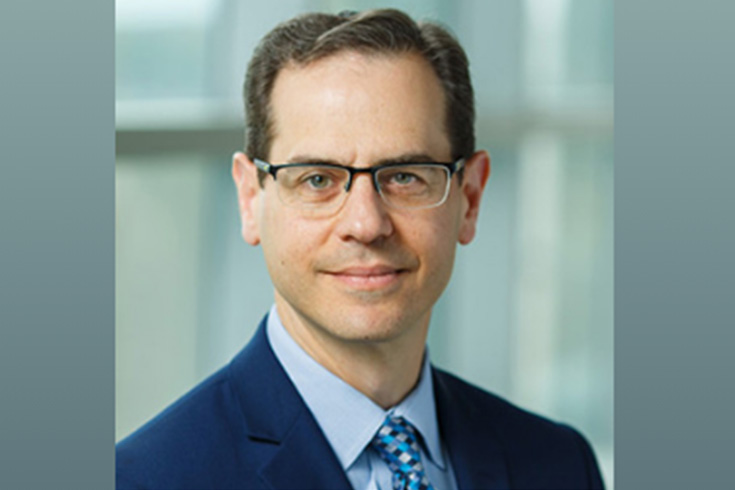
February 26, 2026
1-1:30 ET via Zoom
The heart of Jewish education, it seems, is the study of the Jewish textual tradition, or what insiders call “learning Torah.” There are good reasons to think about Jewish education that way. But there are also some reasons to question that assumption, based on the history of Jewish textuality and the history of Jewish culture. In this session, Jon A. Levisohn will discuss a recent book chapter, where he argues that we need to think more broadly about how and why Jewish education helps young people engage with a wide range of Jewish cultural practices.
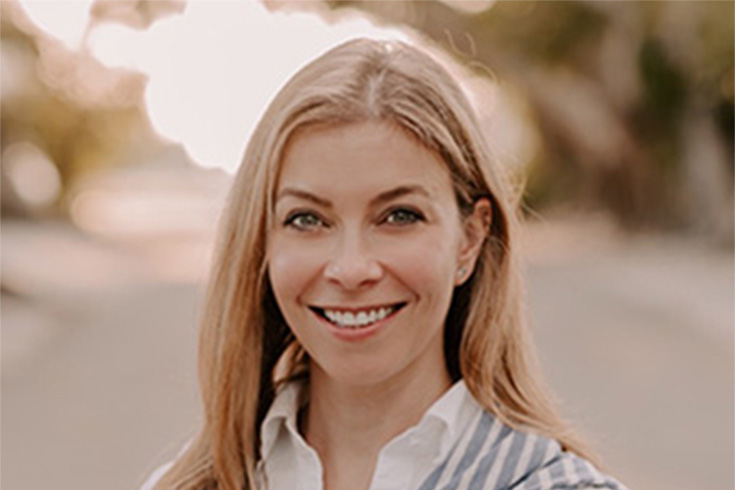
March 26, 2026
1-1:30 ET via Zoom
Reports from research centers and in the media make it clear that overt antisemitic incidents have surged on college campuses since October 7. But what about those subtle forms of antisemitism, which are much less likely to be reported and documented? Yael Silverstein and her colleagues asked university students, faculty, and staff about overt and subtle antisemitic experiences, and they found that both types had negative outcomes for individuals and institutions. In this session, she will share a framework for identifying, teaching about, and addressing antisemitic experiences in academic settings.
Past Events
Click on the link to jump to the event description and video.
Learning About Learning: A Conversation with...
- Lauren Applebaum and Sivan Zakai — Bringing the Big World into the Little Classroom
- Sharon Avni — Accentuating the Jewish Hebrew Speaker
- Anastasia Badder - Fluid Meanings of the Yarmulke Across Educational Contexts
- Mijal Bitton — How Jewish Communities Educate
- Judah Cohen — How Debbie Friedman (and CAJE) Gave Jewish Education a New Soundtrack
- Benji Davis — Jewish Educators' Responses to "You Never Told Me"
- Sandra Fox - Why Young Jews Love Yiddish
- Keren Fraiman - How Educators Can Overcome Barriers to Engaging with the Conflict
- Esther Friedman - Navigating Ideological Differences in Pluralistic Jewish Schools
- Anna Hartman — Children's Theories About Judaism
- Ziva Hassenfeld — Why Jewish Day Schools Should Teach Students to Read Torah
- Ziva Hassenfeld and Hadar Fisher — How the Conflict Shapes the Israeli Classroom
- Miriam Heller Stern — How the Study of Jewish History Informs the Arts
- Miriam Heller Stern — Jewish Creativity: An Essential Aspiration of Jewish Education
- Ilana Horwitz — What Girls Learn in Jewish Families
- Talia Hurwich - Visualizing Jewish Texts and Practices Through the Graphic Novel
- Meredith Katz — How Do Jewish Day School Kids Think About the Holocaust?
- Ari Y. Kelman — What Can We Learn From Jewish Education?
- Shaul Kelner - How American Activists Helped Free Soviet Jews
- Hannah Kober - How Israeli-Americans Think About Their Kids' Hebrew Learning
- Jonathan Krasner — How Camp Ramah Met the Challenges of the 1990s
- Judd Levingston - Getting Serious About Play in Jewish Education
- Jon Levisohn — What We Can Learn from Seymour Fox and the Visions of Jewish Education Project
- Jenny Small — Fraternities and Sororities as Jewish Communal Spaces
- Laura Stein - What Rabbinical Students Say They Need From Their Training
- Laura Yares — Learning at a Jewish Museum
- Laura Yares — What 19th Century Jewish Education Can Teach Us about Jewish Education Today
- Tali Zelkowicz — Using Both/And Thinking to Repair a Rift in Jewish Education
Past Events

January 15, 2026
In this session, we explore insights into how Israel educators from Jewish high schools across the denominational spectrum approach teaching modern Israel in response to the "you never told me" phenomenon: graduates expressing disillusionment that criticisms of Israel were not covered in their high school education. Benji Davis discusse his recent study and share how educators intentionally incorporate both Zionist and Palestinian perspectives to deepen students' Jewish identification with Israel and the Jewish people, while preparing them to engage in conversations about Israel on campus.
Video and podcast available soon for Jewish Educators' Responses to "You Never Told Me"
November 20, 2025
In a time of continued war and exhaustion, how are teachers in Israel teaching, and what do they prioritize in their classrooms? In a longitudinal study, scholars Ziva Hassenfeld and Hadar Fisher asked these questions of 41 teachers in Israel, beginning just three weeks after October 7 and continuing with a group of 12 for another two years. In this session, they share insights into these teachers' ethic of care and how they enact in their teaching varied ideas surrounding their diverse understandings of students' well-being.
![]() Co-sponsored by the Schusterman Center for Israel Studies at Brandeis University.
Co-sponsored by the Schusterman Center for Israel Studies at Brandeis University.
Watch on YouTube: How the Conflict Shapes the Israeli Classroom
Listen to podcast: HOW THE CONFLICT SHAPES THE ISRAELI CLASSROOM

October 23, 2025
Spiritual formation has long been considered an important part of theological education for seminary students in Christian contexts, but what about students in Jewish seminaries? In a recent study of Jewish seminarians' perspectives of their formation needs, scholars learned that rabbinical students at a progressive seminary seek training in areas such as mental health, diversity, and social justice; relational spaces for cultivating virtue capacities; and opportunities for meaningful reflection and processing of their growth. In this session, lead researcher Laura Stein discusses what can be learned about the future directions of Jewish clergy students' formation, and what can be done to address their evolving needs.
Watch on YouTube: What Rabbinical Students Say They Need From Their Training
Listen to podcast: WHAT RABBINICAL STUDENTS SAY THEY NEED FROM THEIR TRAINING
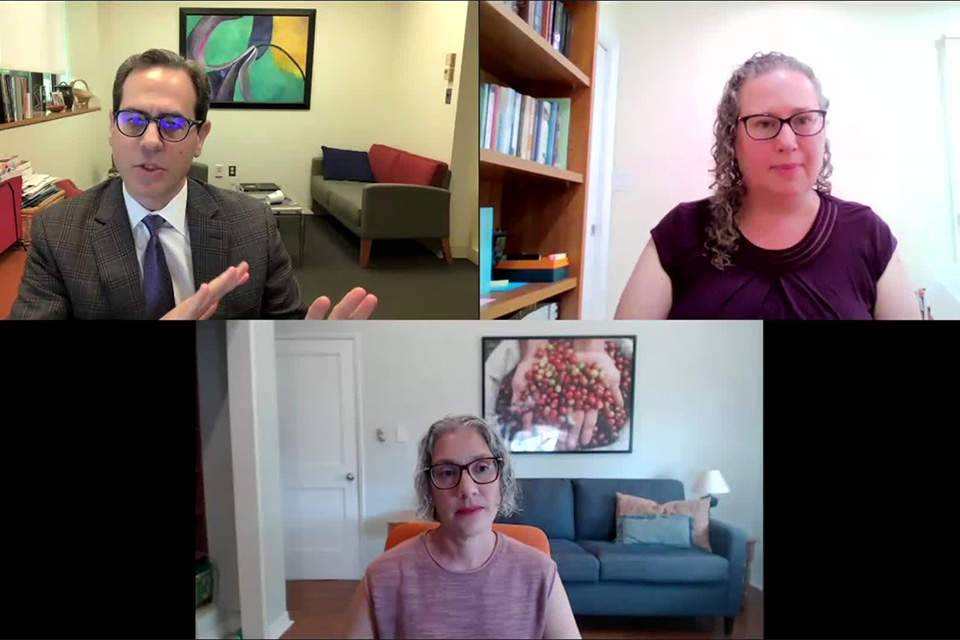
September 18, 2025
What issues in the contemporary world matter most to Jewish children, and how do children make sense of these issues? How do educators make sense of children’s ideas and their implications for the work of Jewish education? American Jewish 4th and 5th graders have concerns about many important world issues—climate change, homelessness, the Russia-Ukraine war, the Israel-Hamas war, political polarization, and so much more—and their teachers face the complexities of addressing political issues, shifting cultural norms, and more. In this session, scholars Lauren Applebaum and Sivan Zakai discuss their findings from a collaborative study with Jewish children enrolled in both day and supplementary schools, and their educators.
Watch on YouTube: Bringing the Big World into the Little Classroom
Listen to podcast: BRINGING THE BIG WORLD INTO THE LITTLE CLASSROOM
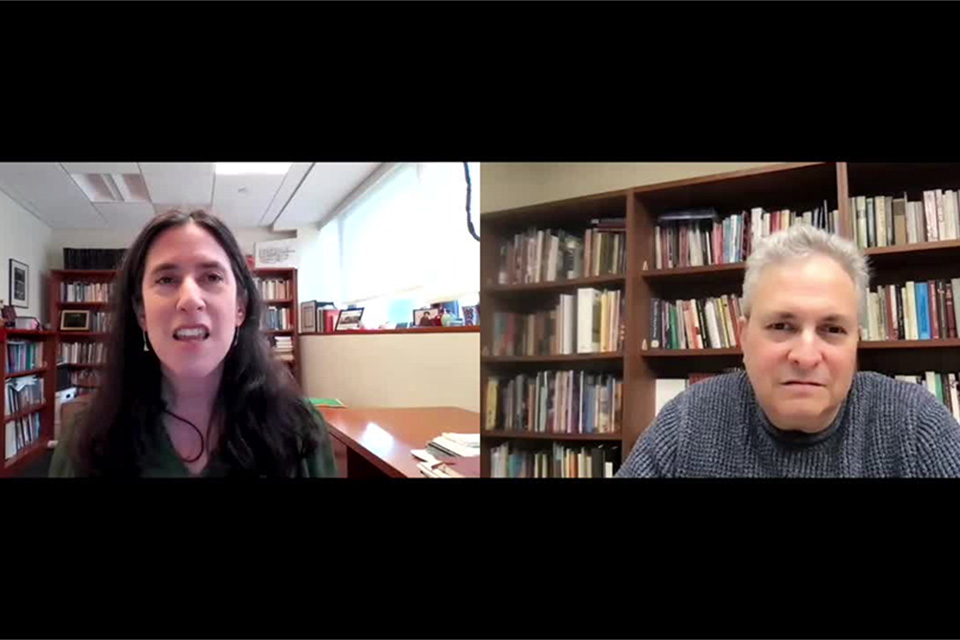
March 20, 2025
Traditionally-Jewish fraternities and sororities are not often considered sites of Jewish community. In this session, Jenny L. Small discusses findings from interviews with fraternity and sorority life (FSL) educators, revealing their perspectives that students in these organizations bear distinctly gendered burdens around Jewish heritage and continuity. The educators in this study lacked a strong understanding of Jewish identity and how students express those identities through FSL; however, effectively supporting these organizations can help them function as sites of belonging for Jewish college students during turbulent times on campus.
Watch on YouTube: Fraternities and Sororities as Jewish Communal Spaces
Listen to podcast: Fraternities and Sororities as Jewish Communal Spaces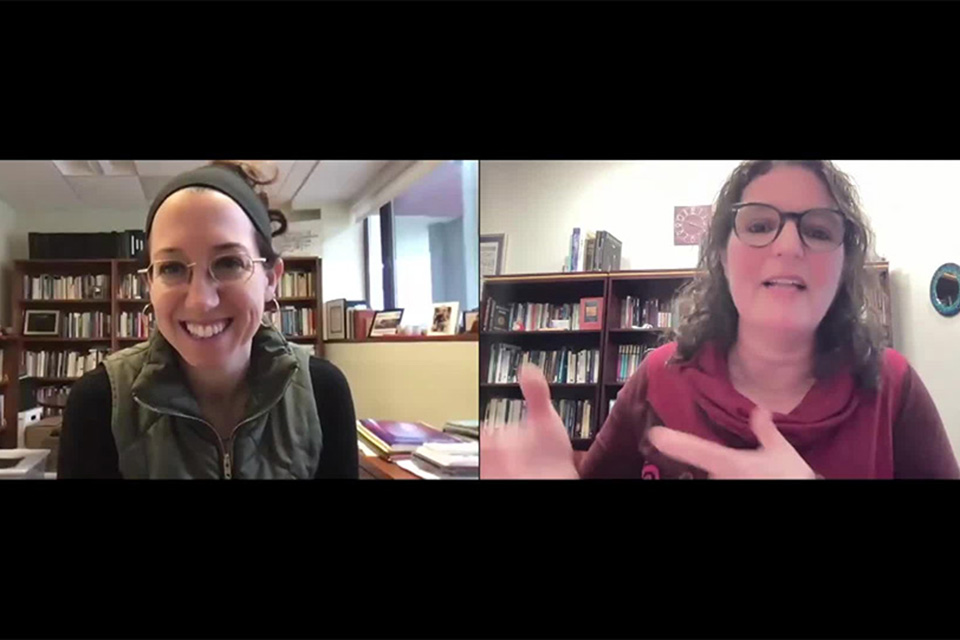
February 27, 2025
The field of Jewish education has now been split into two sub-fields, referred to as “formal” or “informal” (or “experiential”) education. But this division is artificial and proving profoundly limiting, distorting, and even harmful. What might be the ultimate potential of the field were we able to employ a balanced and integrated use of the full range of educational competencies, across all settings? In this session, Tali Zelkowicz shares recent work, in which she applies both/and thinking to surface a more expansive and integrative vision of Jewish learning that can empower and endure.
Watch on YouTube: Using Both/And thinking to repair a rift in Jewish education
Listen to podcast: USING BOTH/AND THINKING TO REPAIR A RIFT IN JEWISH EDUCATION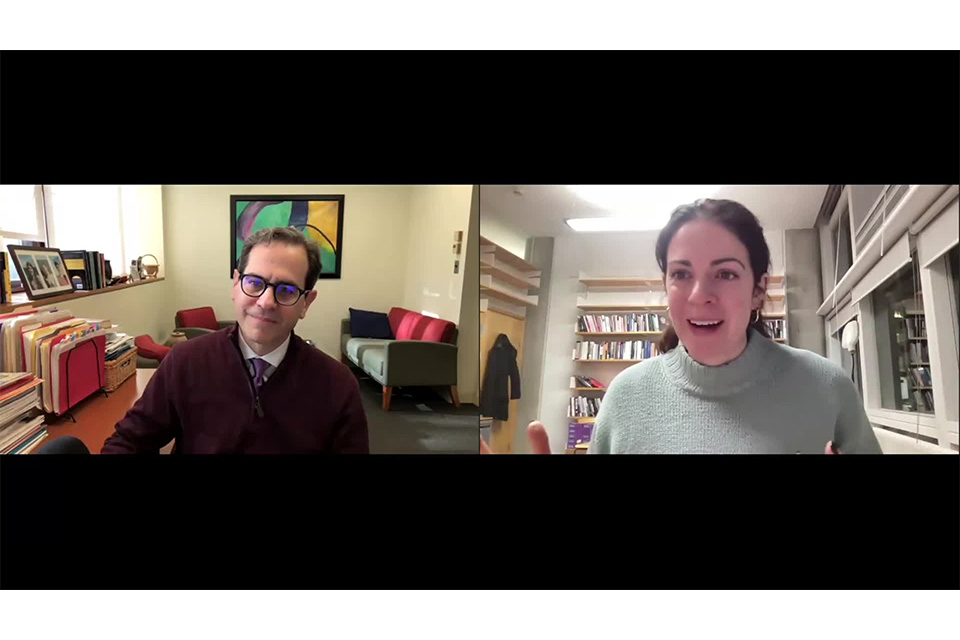
January 23, 2025
In her article, "When a Yarmulke Stands for All Jews: Navigating Shifting Signs from Synagogue to School in Luxembourg," Anastasia Badder asks: How do congregational school students experience moments in which they were confronted with Jewishness outside of the classroom, in their secular schools and public spaces? And taking a material approach, how does the presence (and absence) of yarmulkes influence those experiences? In this session, she discusses findings from fieldwork she conducted as an ethnographer and teacher in a Jewish congregational school researching the ways children learn about and how to do Jewishness.
Watch on YouTube: Fluid Meanings of the Yarmulke Across Jewish Educational Contexts
LISTEN TO PODCAST: Fluid Meanings of the Yarmulke Across Educational Contexts

November 7, 2024
Habits of creative thinking have sustained the Jewish people through centuries of crisis and opportunity. How might the enterprise of Jewish education reclaim and teach creativity? Weaving together a wide range of theory and research, including affective neuroscience, Jewish philosophy and education, and studies of creativity and arts education, Miriam Heller Stern discusses a framework for fostering Jewish creativity that can be pursued across the Jewish educational ecosystem.
Watch on YouTube: Jewish Creativity: An Essential Aspiration for Jewish Education
Listen to podcast: Jewish Creativity: An Essential Aspiration for Jewish Education
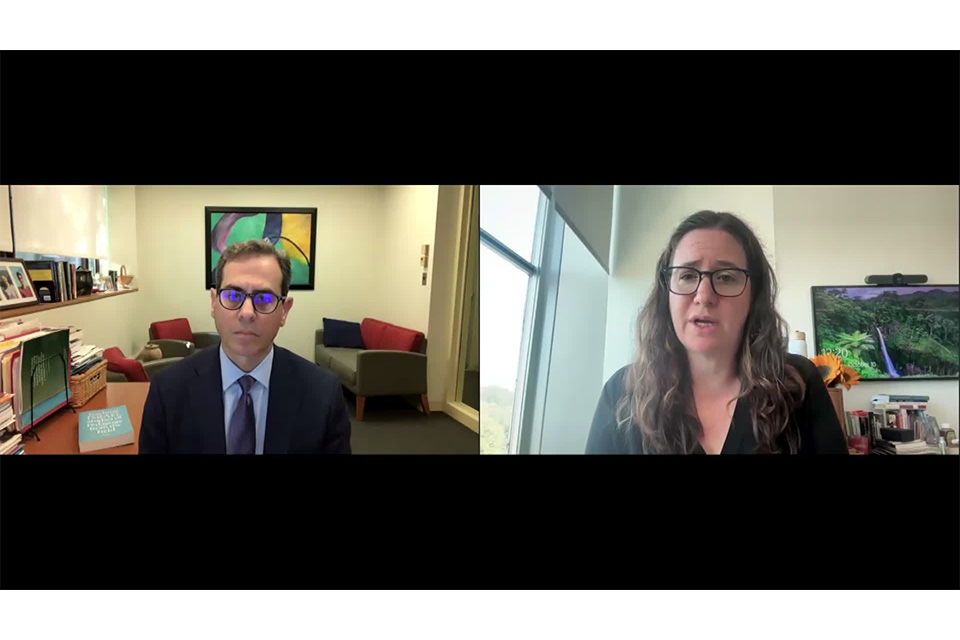
October 10, 2024
There is a growing consensus that successful and holistic Israel education demands a sophisticated and nuanced engagement with critical questions within Israel, and in particular, the Israeli-Palestinian conflict. This feels especially pressing in a post October 7th world. Despite this critical need, many educators continue to express reticence about conflict education. In this session, Keren Fraiman explores why educators are hesitant to engage in conflict education, highlighting the greatest sources of challenge and a typology of barriers to entry. Importantly, she shares what we can do to support our educators, educational systems, and the community more broadly.
Watch on YouTube: How Educators Can Overcome Barriers to Engaging with the Conflict
Listen to podcast: HOW EDUCATORS CAN OVERCOME BARRIERS TO ENGAGING WITH THE CONFLICT
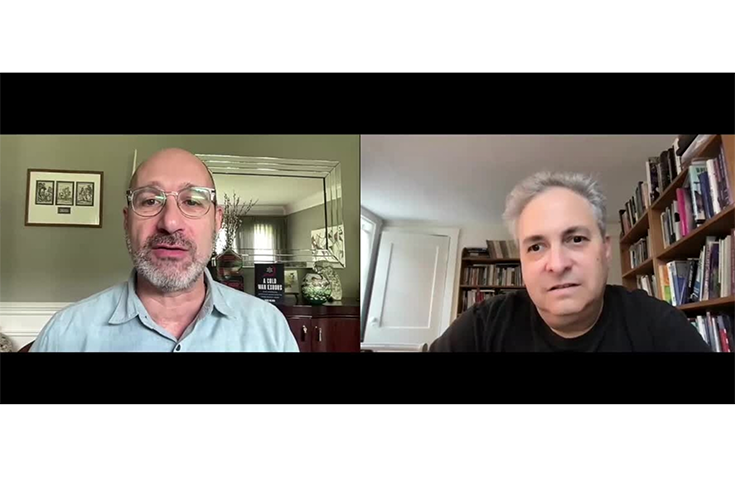
September 26, 2024
In his recent book, Shaul Kelner recounts the compelling stories of heroism that helped to free Soviet Jews. In this session, he discusses how this activism reached Jewish educational spaces — through bar and bat mitzvah twinning, school field trips to rallies, summer camp programming, and much more — and reshaped the Jewish American experience from the Johnson era through the Reagan-Bush years.
Watch on YouTube: How American Activists Helped Free Soviet Jews
Listen to podcast: HOW AMERICAN ACTIVISTS HELPED FREE SOVIET JEWS

April 11, 2024
What happens when students of classical Jewish texts encounter visual representations of those texts, not just words? In her recent study Reconsidering Religious Gender Normativity in Graphic Novel Adaptations, Talia Hurwich learned that students often respond in deeply personal ways to visual representations of topics that may otherwise be suppressed by social norms around Jewish texts and practices. In this session, she discusses the role graphic novels can play in mediating between traditional religious practices and modern social change.
Watch on YouTube: Visualizing Jewish Texts and Practices through the Graphic Novel
Listen to Podcast: Visualizing Jewish Texts and Practices through the Graphic Novel
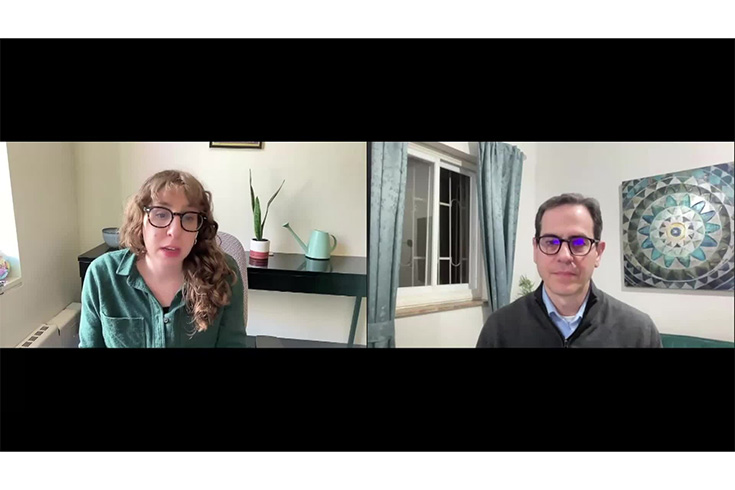
February 8, 2024
Over the last two decades, talk of Yiddish as an alternate path of engaging with Jewishness comes up in the Jewish press almost cyclically — a journalistic evergreen. In this session, historian and Yiddish podcaster Sandra Fox explains how Yiddish became culturally significant, why young people are flocking to learn Yiddish in larger numbers than ever before, and what the growth of Yiddish says about American Jewish youth culture.
More information can be found in her article, 'The Passionate Few': Youth and Yiddishism in American Jewish Culture, 1964 to Present.

January 18, 2024
Like other immigrants, many Israeli expatriates find themselves asking how they can maintain their culture on American soil. But what happens when their children learn their heritage language in American educational settings? In this session, Hannah Kober discusses the surprising finding from her recent research that the long-held narrative about Israeli-Americans as producers of Hebrew language education, and not as consumers, needs reconsideration.
Watch on YouTube: How Israeli-Americans Think About Their Kids’ Hebrew Learning
LISTEN TO PODCAST: How Israeli-Americans Think About Their Kids’ Hebrew Learning

December 7, 2023
How and why does the ability to navigate ideological differences within classrooms matter to Jewish education — and beyond? In this session, Esther Friedman discusses her recent study on the lived experiences of Orthodox teachers who teach Bible in pluralistic community schools and the institutional-level challenges they face.
Watch on YouTube: Navigating Ideological Differences in Pluralistic Jewish Schools
Listen to Podcast: Navigating Ideological Differences in Pluralistic Jewish Schools

November 15, 2023
Beyond lifting the spirits of teachers and students, play in Jewish education spaces can also shape moral development and character. Drawing from his new research, Judd Kruger Levingston shares how teachers and administrators can cultivate "a moral ecology of play" in classrooms, hallways, gathering spaces, and playgrounds. In this session, Levingston speaks about ways in which a wide variety of approaches to play across the curriculum and throughout a school's culture can transform a young person's values and moral outlook.
Watch On YouTube: Getting Serious About Play in Jewish Education
LISTEN TO PODCAST: Getting Serious About Play in Jewish Education

October 19, 2023
Most histories of American Jewish education deride 19th-century Jewish Sunday schools. But when Laura Yares looked more closely at the curricula, the operative philosophies and the experiences that students and teachers had in these schools, she found that they did important cultural work. In this session, she discusses her recent book, Jewish Sunday Schools: Teaching Religion in Nineteenth-Century America, and describes what educators can learn from this pioneering generation in American Jewish education..
Watch on YouTube: What 19th Century Jewish Education Can Teach Us about Jewish Education Today
Listen to Podcast: What 19th Century Jewish Education Can Teach Us about Jewish Education Today

May 3, 2023
In the 1990s and the early 2000s, Jewish educators and educational institutions started talking about "vision" in a new way, prompted by the efforts of the Mandel Foundation and especially its influential leader Seymour Fox. For many, the publication of "Visions of Jewish Education" (2003) was a landmark event in the field. Jon A. Levisohn discusses an article in which he analyzes how Fox's ideas about vision in Jewish education developed over time, some of the challenges that he encountered, and what we can still learn from them. This session is led by Professor Jonathan Krasner (MCSJE).
Watch on YouTube: What We Can Learn From Seymour Fox and the Visions of Jewish Education Project
Listen to Podcast: What We Can Learn From Seymour Fox and the Visions of Jewish Education Project

March 15, 2023
In the past, Jewish families, like many others, offered girls fewer educational opportunities than boys. But that has not been the case for some time now. In her recent scholarship, Ilana Horwitz demonstrates the ways that girls raised by Jewish parents complete more years of college and attend more selective schools than girls from comparable socioeconomic backgrounds raised by non-Jewish parents. She argues that this is based on a distinctive "religious subculture" in the home.
More information can be found in her article, "From Bat Mitzvah to the Bar: Religious Habitus, Self-Concept, and Women's Educational Outcomes" (American Sociological Review, Feb. 28, 2022).

February 8, 2023
Children's ideas about the world are rich, nuanced, sometimes amusing and surprising, and for Anna Hartman, always fascinating. In this session, she shares her doctoral research in the field of early childhood Jewish education, in which she explores the theories about Judaism that are held by young children, and provides a window into their process of exploring and participating in Jewish life.

December 7, 2022
Jewish day schools expend significant time and energy in teaching Torah. But what are they trying to accomplish in this work? In this session, Ziva Hassenfeld discusses her soon-to-be published research on students' learning to read Torah, in order to argue that Jewish day schools can induct students into a way of reading texts that will serve them in all endeavors, from their academic studies to text messaging with friends.
Watch on YouTube: Why Jewish Day Schools Should Teach Students to Read Torah
Listen to Podcast: Why Jewish Day Schools Should Teach Students to Read Torah

November 17, 2022
In this session, Judah Cohen discusses his recent article on the crucial role that Debbie Friedman played in making song leading a core part of the Coalition for Alternatives in Jewish Education (CAJE). He also addresses the changes in Jewish education that resulted from this alliance, and why it still matters.
Watch on YouTube: How Debbie Friedman (and CAJE) Gave Jewish Education a New Soundtrack
Listen to Podcast: How Debbie Friedman (and CAJE) Gave Jewish Education a New Soundtrack

October 27, 2022
Holocaust education is a staple of Jewish day school education. What messages do day school students take from this education? In this session, Meredith Katz discusses her recently published study, which explores how a group of day school kids navigated questions of particularism and universalism, and how Holocaust education helped them to see themselves as civic actors in the broader community.
Watch on YouTube: How Do Jewish Day School Kids Think About the Holocaust?
Listen to Podcast: How Do Jewish Day School Kids Think About the Holocaust?

May 4, 2022
Most analyses of Jewish education, like most analyses of general education in Western, liberal society, emphasize the individual student. But some communities approach education very differently. Mijal Bitton discusses her research into how the Syrian Jewish community educates its members, formally and informally, to maintain bonds of commitment.

April 11, 2022
The term "Jewish education" is used to refer to a broad array of practices, approaches and institutions. Ari Kelman has written a new book, "What Can We Learn From Jewish Education," forthcoming from Rutgers University Press in its Key Words in Jewish Studies series. The series includes books designed to "provide clear and judiciously illustrated accounts of terms currently in use and to chart histories of past usage." In this conversation, Kelman talks about a broad shift from what Jewish education has meant, in modernity, to what it might mean for Jewish life in the 21st century.

March 10, 2022
What can we learn about society, people's relationship with Israel, Jewish people, and themselves, through Hebrew accents? Possibly quite a bit! This conversation focuses on Sharon Avni's recent work on how the everyday acts of speaking, learning and engaging with modern Hebrew inform our understanding of contemporary American Jewish life.
Watch on YouTube: Accentuating the American Jewish Hebrew Speaker
Listen to Podcast: Accentuating the American Jewish Hebrew Speaker

December 10, 2021
How does a Jewish theater company draw upon Jewish history to wrestle artistically with universal human questions? How do they weave new narratives through the work of interpretation? Miriam Heller Stern, in recent work published as a chapter of the edited volume, "Portraits of Adult Jewish Learning: Making Meaning at Many Tables," addresses these questions and analyzes how the model of a creative company can be a powerful way of conceiving of adult Jewish learning.
Watch on YouTube: How the Study of Jewish History Informs the Arts
Listen to Podcast: How the Study of Jewish History Informs the Arts

November 11, 2021
What happens when young adults visit a Jewish museum? What do they learn about Jews and Judaism, and how are they changed by what they see, touch, hear and feel? In this talk, Laura Yares discusses findings from a study of 30 young adult visitors to the National Museum of American Jewish History in Philadelphia, and describes the rich learning that can occur in episodic, leisure time Jewish educational settings.

October 14, 2021
The Jewish overnight camping industry was on the verge of major changes in the late 1980s, when Shelly Dorph became the head of the Ramah National Commission. Jonathan Krasner discusses the case of Ramah and how it reflects on the challenges and opportunities that Jewish non-profit summer camps faced in the 1990s and early 2000s, and what it means for Jewish camps today.
Watch on YouTube: How Camp Ramah Met the Challenges of the 1990s
Listen to Podcast: How Camp Ramah Met the Challenges of the 1990s